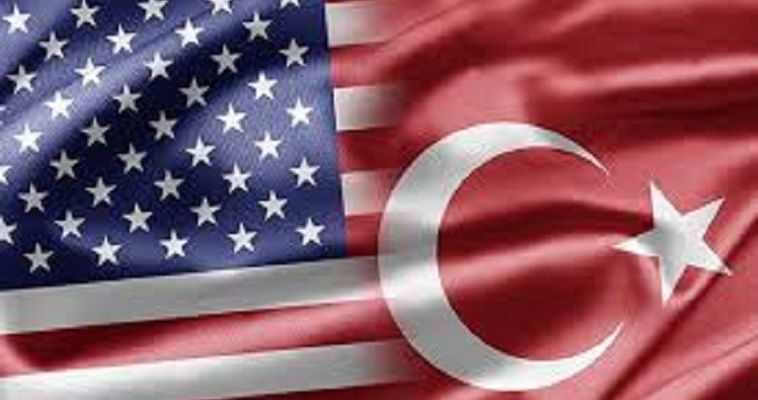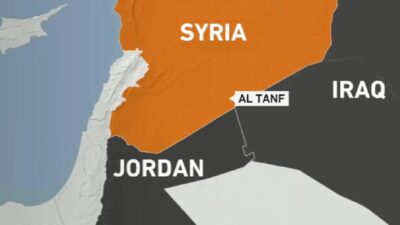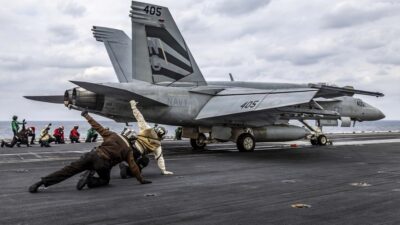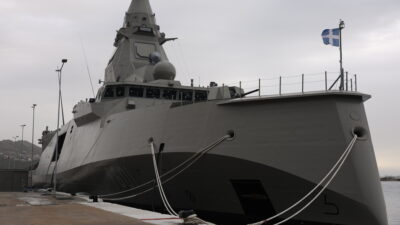Stavros Lygeros: How we got to the sanctions – The four US messages to Turkey
18/12/2020
The decision to impose sanctions on Turkey marks a turning point in the strained US-Turkish relationship for at least the past five years. That is since Washington began to realize that Erdogan’s neo-Ottoman ambitions were not what it thought they were and began to think twice.
At first, the Americans believed that the Justice and Development Party represented a moderate pro-Western political Islam, which could be a model for the Muslim world. That is why, at the beginning of his term, Obama had visited Cairo and Istanbul to send this message. This view has long since collapsed.
When Erdogan won the informal civil war with the deep Kemalist state, he began to unfold his own political agenda. He launched not only Islamization, but also his strategy for political autonomy from the West, in order to turn his country into an independent regional power.
So when Turkey began to slip away, the West began to look at it in a different light. In fact, when Erdogan started playing with Putin, the Americans tried to bring him back to the “fold”, trying to put the squeeze on him. Through its bases in the Turkish state apparatus, the Gulen network (controlled by Washington), launched a secret investigation into the corruption of the Erdogan family and his close associates.
The Turkish leader not only did not rush to adapt to the situation but also declared war on the network, without whose support he would never have won the war against the deep Kemalist state. His election marked his informal clash with Washington.
The opening to Putin
With the downing of the Russian bomber on the Turkish-Syrian border (November 2015), Erdogan had attempted to lure NATO into a confrontation with Russia and thus consolidate Turkey’s position as an autonomous but irreplaceable regional strategist. Obama, however, did not fall into the trap, leaving Ankara alone against Moscow.
When he saw that his maneuver had failed, Erdogan opened up to Putin. His aim was not only to bridge the rift he had caused in Russian-Turkish relations but also to use Moscow as a counterweight to growing Western distrust, if not hostility, towards him. For Washington, the Turkish turn to Russia was the last straw.
This is how we came to the failed coup of July 2016. Erdogan firmly believes that it was instigated by the Americans. When he publicly accuses Gulen, he means the CIA. It is probably not very unfair. In the first hours, when it seemed that the coup would prevail, American officials had almost supported it. This is one of the reasons, among other things, that the Turkish president’s opening to his Russian counterpart turned into a geopolitical embrace, despite the conflicting interests of the two countries in Syria.
They do not want to lose Turkey
When the scales tilted in Erdogan’s favor, Washington rushed to roll over and try to normalize relations with Ankara. It was the period when he tolerated the aggressive statements of the neo-Ottoman leader. The US hoped that by giving him some compensation in Syria at the expense of the Kurds, it could return Turkey to the “western corridor”.
The Americans have not yet overcome the loss of Iran in 1979 and do not want to lose the geopolitically valuable Turkey. That is why they showed unprecedented patience. Instead of bridging the gap, however, it fueled the intransigence of Erdogan, who bought the Russian S-400 anti-aircraft system. It was no longer about words, but about a fait accompli that created a negative precedent.
Typically, of course, nothing has changed. Turkey remains a NATO member and a candidate for EU membership. But in reality, however, the way Westerners view Turkey has changed. Turkey’s European perspective, after all, has been a sham for years. The EU does not want Turkey in its ranks either, nor does Turkey really seek it anymore.
The American practical messages before the sanctions
It is noteworthy, however, that even after that, Washington continued its efforts to return Turkey to the “western fold”. Erdogan’s refusal to cancel the purchase of the S-400, however, brought things to a head. He forced the US to block the delivery of the F-35 fighters and to expel Turkey from the relevant program. It was the first practical message. The second message was when US Justice prosecuted Mehmet Hakan Attila, a banker closely linked to Erdogan, for violating sanctions against Iran through Halkbank.
In the midst of these informal skirmishes, then-US Secretary of State Tillerson in the spring of 2018 flew to Ankara to negotiate with the Turkish president in a last-ditch effort to bridge the US-Turkish rift. Their individual agreement on Syria, however, did not solve the main problem.
In fact, on the occasion of the case of the imprisoned pastor Branson, President Trump had imposed sanctions on two Turkish ministers. At the same time, moves to undermine the Turkish lira escalated, accelerating its sharp fall. This was the third practical American message, but even that did not work.
There may be a “bubble” in the Turkish economy, but its productive base and fiscal figures were sound. But once Washington launched the currency war and managed to hit the Turkish lira hard, it was only a matter of time before the Turkish economy was partially destabilized, which de facto derailed Erdogan politically.
Push comes to shove
After a while, Erdogan released Pastor Branson, without getting the compensation he was asking for. However, it fueled expectations in Washington that US-Turkish relations might be normalized. President Trump, in fact, had lifted the sanctions, but bilateral relations were neither restored nor did it cause a rupture. Thus, the informal Washington-Ankara diplomatic tug-of-war continued. Apart from his geopolitical bigotry, the main reason was that – especially after the coup – Erdogan did not trust the Americans. He thinks that he has been black-listed.
Due to Trump’s idiosyncratic relationship with his Turkish counterpart, however, Washington continued not to tug at the reins. The US hoped that even if it did not get along with Erdogan, it would bring Turkey back to the “western fold” when he would either be removed from the limelight. As I mentioned before, however, the S-400s brought things to a head.
But again, Washington tried to avoid the rupture, urging Ankara not to activate the missile system. Erdogan, however, activated them and called on the Americans to negotiate, essentially to accept what he had done. This is the classic method used by Turkey against Greece. Only the USA is not Greece. A superpower does not negotiate under a fair accompli. Here it seemed that the “sultan” lost his temper.
From the Menendez-Rubio initiative to sanctions
That’s how we got to the fourth US message, which was the legislative initiative of Senators Menendez and Rubio, which secured unprecedented cross-party support in Congress in 2019. for the tripartite scheme between Greece-Cyprus-Israel, the non-delivery of F-35 etc.
It was thus confirmed that the American-Turkish rift affects – perhaps decisively – the position and role of Greece in the region. To be precise, the change in the way Westerners see Turkey also changes the way they see Greece. This is especially true for Americans, who have a global outlook rather than a narrow EU economic outlook. What exactly this means will be seen in a future article.
It is clear from the above that the imposition of US sanctions was a ripe “fruit” of the climate that is consolidating for Turkey in the decision-making centers in the US. This was evident in the Senate vote. Washington is ready to again pick up the thread of normalizing bilateral relations if Erdogan backtracks on the S-400 issue, but that is unlikely. It would be political suicide for the “sultan”. It would seriously damage his prestige, torpedo his relationship with Putin, and nullify his entire strategy.
If backing down is not an option for the Turkish president, the escalation of pressure on Ankara becomes just as much a one-way street for the US. This practically means that the announced sanctions set in motion a dynamic for rupture, because it is only the starting point of a geopolitical tug-of-war which by its nature has a conflictual character.





